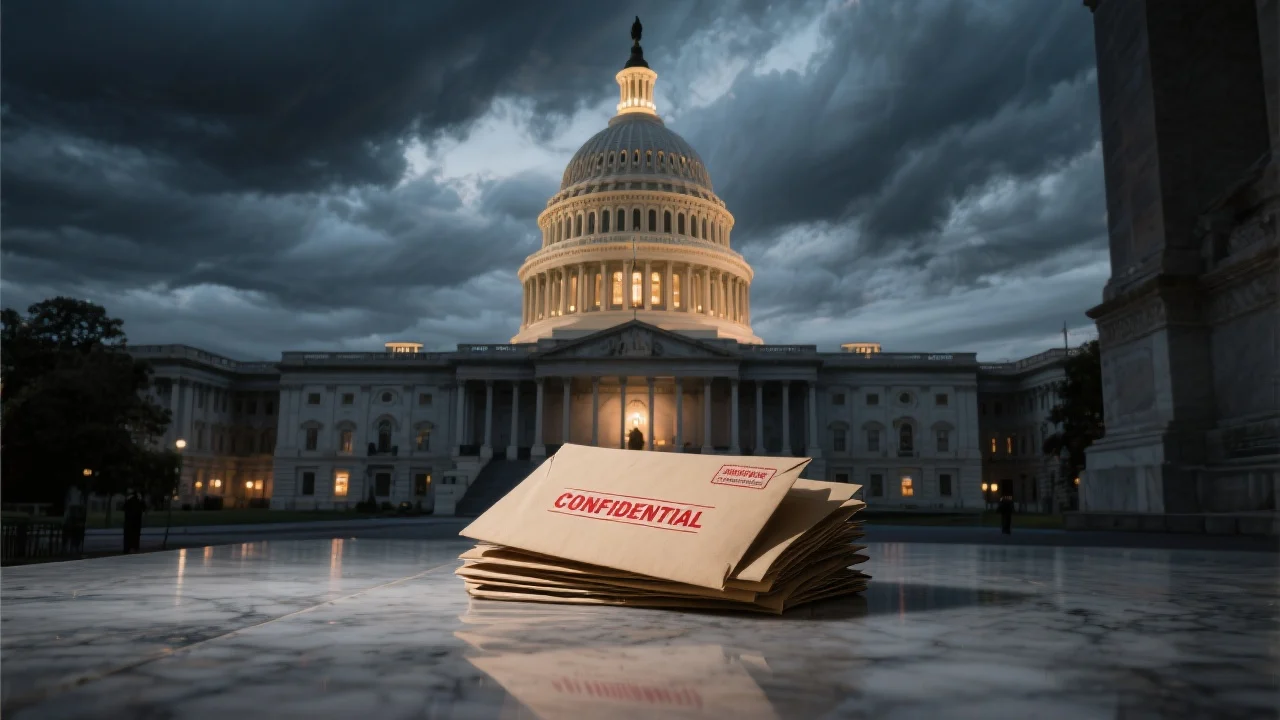
On a humid August morning, the House Oversight Committee did what few in Washington thought possible: it issued subpoenas to Bill and Hillary Clinton, along with a who’s who of former attorneys general and FBI directors, demanding testimony
about their knowledge of Jeffrey Epstein’s crimes and the government’s handling of his case.
The move, which instantly ricocheted through the capital’s power corridors, signals a new phase in the long, tangled saga of Epstein’s connections to America’s elite.
The subpoenas, signed by Republican Chair James Comer, are not just about the Clintons. They also target former top law enforcement officials from both Democratic and Republican administrations, including Merrick Garland, Loretta Lynch, Eric Holder, Alberto Gonzales, Jeff Sessions, William Barr, James Comey, and Robert Mueller. The committee’s stated aim: to scrutinize the federal government’s enforcement of sex trafficking laws and, more pointedly, its handling of the Epstein and Ghislaine Maxwell investigations. The Justice Department itself has been ordered to turn over all Epstein-related records by August 19, a deadline that now looms over the entire city.
The Trump Administration’s Calculated Transparency
The timing is no accident. President Donald Trump, who has long been dogged by questions about his own relationship with Epstein, recently directed the Justice Department to unseal grand jury records from the Epstein and Maxwell cases. The move was pitched as a gesture toward transparency, but it has only deepened the partisan rift. Trump’s base, once convinced that a “client list” would expose a cabal of powerful abusers, is now split. The Justice Department’s July announcement that no such list exists, and that most grand jury testimony has already been made public, has left many feeling betrayed.
The administration’s approach has been to throw open the doors—at least rhetorically—while quietly insisting that there’s little left to reveal. Legal experts, for their part, say the grand jury records are unlikely to contain bombshells. Most of the testimony, they note, was already aired during Maxwell’s trial or in civil litigation. Still, the symbolism of the subpoenas and the push for more files has become a political cudgel, wielded by both parties as they jockey for the moral high ground.
The Clintons: Old Shadows, New Questions
For the Clintons, the subpoenas are a reminder that the Epstein story is as much about perception as fact. Bill Clinton’s documented flights on Epstein’s private jet in the early 2000s, and his meetings with Epstein in New York, have long fueled speculation. The committee’s letter to Clinton cites these trips, as well as his alleged efforts to influence media coverage of Epstein, as reasons for his testimony. Hillary Clinton’s connection is more tenuous, but the committee argues that her proximity to both Epstein and Maxwell, and her role as Secretary of State during key years, make her a relevant witness.
The Clinton camp has consistently denied any knowledge of Epstein’s crimes. In 2019, a spokesperson said the former president “knows nothing about the terrible crimes Jeffrey Epstein pleaded guilty to in Florida some years ago, or those with which he has been recently charged in New York.” The foundation and the Clintons’ press office have not commented on the latest subpoenas, but the silence is telling. In Washington, silence is rarely neutral.
The Broader Cast: DOJ, FBI, and the Ghosts of Administrations Past
The committee’s net is wide. Alongside the Clintons, it has summoned a parade of former attorneys general and FBI directors, each with their own complicated history with the Epstein case. Notably absent is Alex Acosta, the former U.S. attorney who brokered Epstein’s infamous 2008 plea deal. His omission has raised eyebrows, especially given his central role in the original non-prosecution agreement that allowed Epstein to avoid federal charges for years.
The Justice Department, for its part, has maintained that it found no evidence of a “client list” or blackmail material in its review of Epstein’s files. Yet, the committee is demanding all documents and communications related to Epstein and Maxwell, including those from the 2007 non-prosecution agreement and subsequent federal investigations. The scope is breathtaking, and the potential for new revelations—however slim—has kept the city on edge.
The Political Theater and the Search for Truth
What’s striking about this moment is not just the cast of characters, but the choreography. The subpoenas come as Congress is on recess, a time when lawmakers typically retreat from the spotlight. Yet, the Epstein case has a gravitational pull that few scandals can match. It’s a story that blends genuine horror with the allure of conspiracy, and it has ensnared figures from every corner of American power.
The committee’s actions are as much about optics as substance. By demanding testimony from the Clintons and other high-profile figures, lawmakers are signaling to the public that no one is above scrutiny. Whether these depositions will be public, or whether they will yield anything beyond what’s already known, remains to be seen. But the spectacle itself is the point—a reminder that, in the age of viral outrage and perpetual scandal, the search for truth is often inseparable from the performance of accountability.
The Road Ahead: Unanswered Questions and Lingering Doubts
As the deposition dates approach—Bill Clinton is scheduled for October 14, Hillary for October 9—the city is bracing for a new round of headlines, leaks, and speculation. The Justice Department’s deadline to release records is just weeks away. Ghislaine Maxwell, now in a Texas minimum-security prison, has signaled a willingness to testify if granted immunity, though her deposition has been postponed pending Supreme Court review of her conviction.
The Epstein saga is, at its core, a story about power: who wields it, who protects it, and who is held to account. The latest subpoenas are unlikely to provide the catharsis that many crave. But they do serve as a stark reminder that, in Washington, the past is never really past—and that the search for answers, however imperfect, is far from over.
